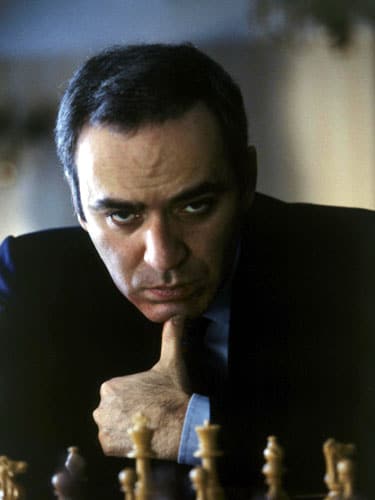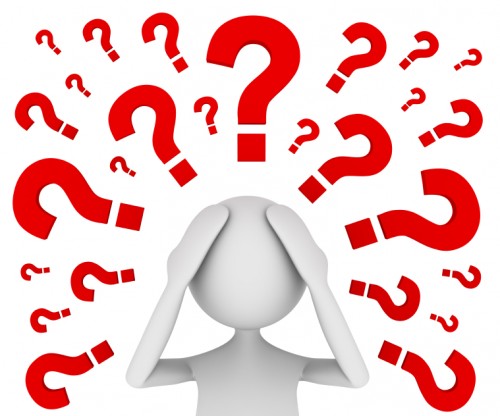Trading Analysis and Gary Kasparov
In 2009, Gary Kasparov, one of the world’s greatest chess players of all time (now retired from competitive chess), played what is a called a simul game exhibition. In this exhibition, he played 25 simultaneous games against some of the top local talent all that the same time. The opposing players had as much time as they wanted to think about their moves while Gary had only about 5 seconds (max 30) per table to make his move. Below are the results of this exhibition;
Gary Kasparov – 21 wins out of 25 matches, 4 draws, no losses.

Gary has actually participated in many Simultaneous exhibitions and contests with similar results, many of which he did speed or blitz style with him having very limited time (often under 30secs) to make a move.
The fact that he did this with only 5 seconds per table on average was quite impressive, but there is something here which is really unique. His highest FIDE rating (a rating system for his skill and performance) ever in his career was 2851, and when he retired, he left with a 2812 rating. Technically since he is no longer competing, his rating has been frozen. But when he plays in exhibitions like these, they still give him a general rating based on performance, competition and play. Herein lies the kicker.
During this exhibition they gave him a rating of about 2600. This is only 212pts behind his retirement rating of 2812 (a 7.5% reduction) and 251pts behind his all time high of 2851 (an 8.8% reduction).
Translation;
In all those other games where he had loads of time, anywhere from 30mins up to an hour, it only improved his performance and rating by a mere 7.5-8.8%. This means the bulk of his analysis, reading, intuition and performance lies in the first few seconds he looks at the board. All the extra time is to work out alternate scenarios and do deep calculations that amounted to an approximate 8% increase.
How Does This Relate to Trading?
Have you ever heard of the phrase ‘analysis paralysis‘? Most likely you have and this topic points to how fruitless it is to spend massive amounts of time analyzing a situation to find the best trading opportunity and most precise entry. Trading should not be a huge process where you go into some deep long think about;
a) whether there is a trading opportunity and
b) how you should trade it

Trading should be a natural endeavor, where you look at the market, quickly see if there are setups according to your trading system, your trading rules for entry and exit, then make the trades. If you are spending a lot of time deciding if there is a trade, or if you should take it, your likely spending too much time thinking about it. It could also be that you are not dealing with the psychology of risk. It also highlights the importance of Concentration and Trading, for if you are really focused and concentrated, you will not let any excess thinking to take you off track and get caught up in some thread of thinking that takes you off course.
Overall, all this extra thinking can bring in the bugaboos, causing doubt, playing off any lack of confidence you have, any recent bad trading experiences, etc., instead of you just trading your plan/system and making the trade.
Again, for an expert like Gary Kasparov, one of the greatest chess players of all time, all that extra think he had after 5-30secs amounted to a small 8% increase in performance. For you and trading, that extra thinking could easily result in a missed opportunity, along with re-inforcing self-doubt, lack of confidence, over-thinking and allow the mind to paralyze you (hence the name ‘analysis paralysis’).
A Similar Experience
Back when I was trading for the hedge fund, we went through some internal training programs and one of them was to point this out exactly. Here is how the exercise went down;
Our President had put the current 10 traders and 15 trainees in a room to look at some charts. What he did in the beginning was show us a chart which we had 2mins to examine. We then had to decide from there if the next move was going to be bullish or bearish and put our answer down on a sheet of paper. We did this 10x and then turned in our answers. I scored 70% accuracy on this.
Then, he would expose us to a chart, but we had only 3 seconds to look at the chart and then make a decision what the next move was. He did this 10x and of course we wrote our answers down, then turned them in. To some surprise, my score increased (to 90%) while everyone of us (save one) had all shown an increase in scores when compared to the decisions we made when we had 2mins per chart. Although I wasn’t totally surprised by this, it had a great impact on me and how I traded from there on out.

It really communicated to me how quickly we can process information, get the gestalt of the market, & through less thinking + intuition, we can make far better trading decisions. By taking less time, we short-circuit the minds ability to over-analyze a situation, along with not allowing any negative thinking patterns to enter into our trading decisions. One thing to consider is having a rule-based system which will help streamline the thinking/trading process and thus eliminate the need to think about whether you have a trade or not. But the next time you find yourself spending a lot of time thinking about it, go to another chart. This will get you thinking about another problem and get you out of the thread you were going on with the last trade. Then come back to the previous trade and see if you have a quick read on it and go with that as long as your rules for entry are there.
Please remember to leave your comments below and to ‘Like’ / ‘Tweet’ to share the article.
For another great article on trading psychology, check out Trading Lessons from the Archery Range pt. 1.

cool article chris. i agree indeed that if you know your stuff, have your own style for dealing with scenarios its just automatic what your call would be depending on the data. I worked for a company before and was mainly focused on solving clients problems. whenever they would tell me what was wrong, w/in a min or two i have already a good idea what i was gonna do the steps that i was gonna take to solve the problem. it all boils down to knowing what works and applying your perception.
i was just wondering if someone trained Gary Kasparov to be a trader how good would he be. i always have pondered upon this as good chess and card players make good tacticians and therefore could be good at trading.
Good points – I too wonder what kind of trader he would be. The runner up in the last WSOP tournament was a chess wiz, former stock traders become great poker players, and many chess players become great traders.
They tend to go hand in hand and convertible skills.
Thanks for the comment
Kind Regards
Chris
Great article Chris, l really need to take this on board!
It reminds me of a book l have on my Kindle waiting to be read (in a long queue!)called “Blink. The Power of thinking without thinking.”by Malcolm Gladwell.Hes the guy who wrote “Outliers” etc as you will no doubt already know, cool guy.
Also it brings to mind a famous “mentalist” who does amazing feats on TV here in the UK, Derren Brown.Barely knowing the rules of chess he took on a room full of Grand Masters or the like in a similar manner to Kasparov.He got a very similar result too,although l think he may have lost one match!He also revealed how he did it…but l won’t spoil things by revealing that!
Thanks again,
Michael.
Interesting story about the mentalist, can you tell me via email? I don’t watch tv but would be interested to hear the story.
Tis a critical lesson to learn though so drink it in.
Kind Regards
Chris
With this i believe i will be better in taking trade decisions on time,you really talked about things that affect my trading
Thank and God bless
Hello Adebisi,
Thanks for the kind words. Like all skill based endeavors, if you practice and train hard, you can become good at it so keep at it, with your study and practice, and your trading skills will increase.
All the best.
Chris
Nice article Chris…Previously I used to analyse the chart for hours but after watching one of course videos on short time analysis I started to practice that and my accurate gets better